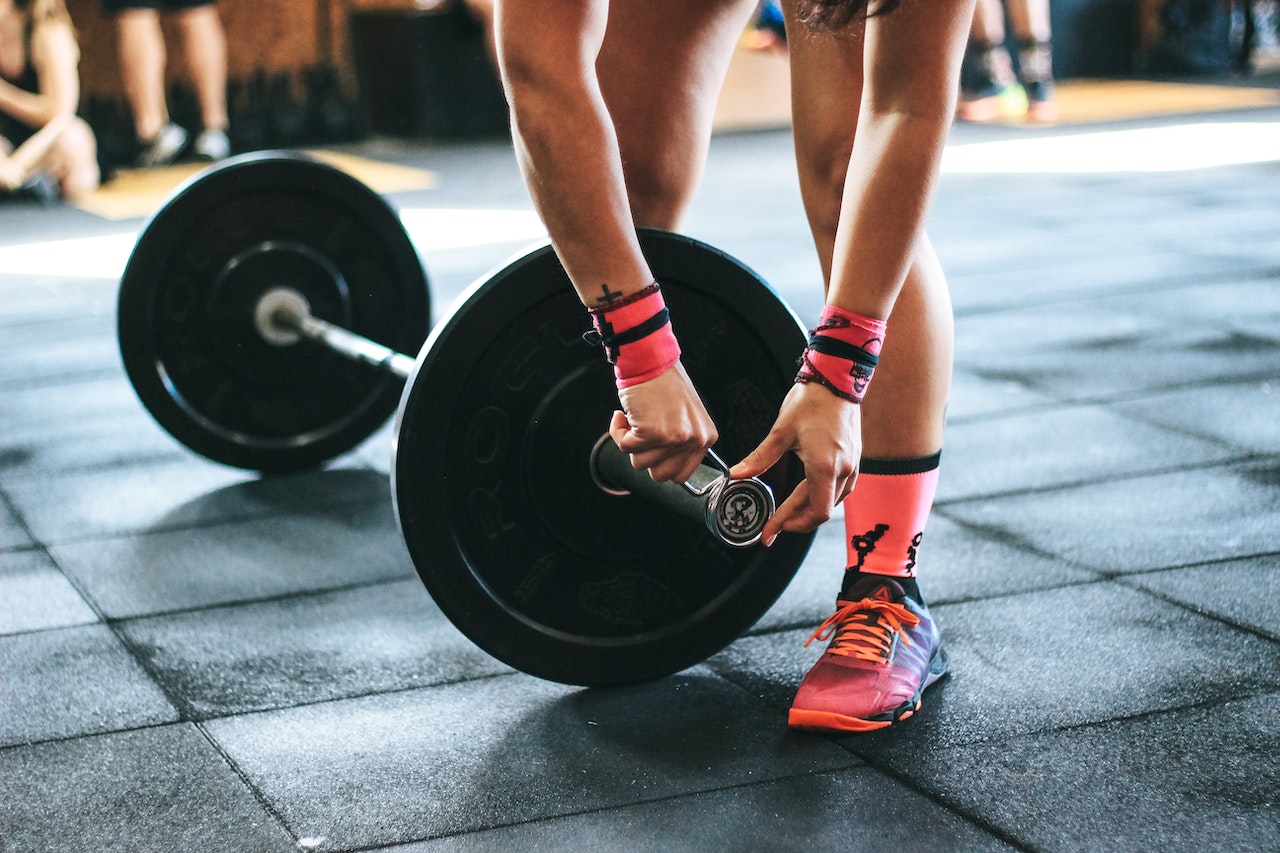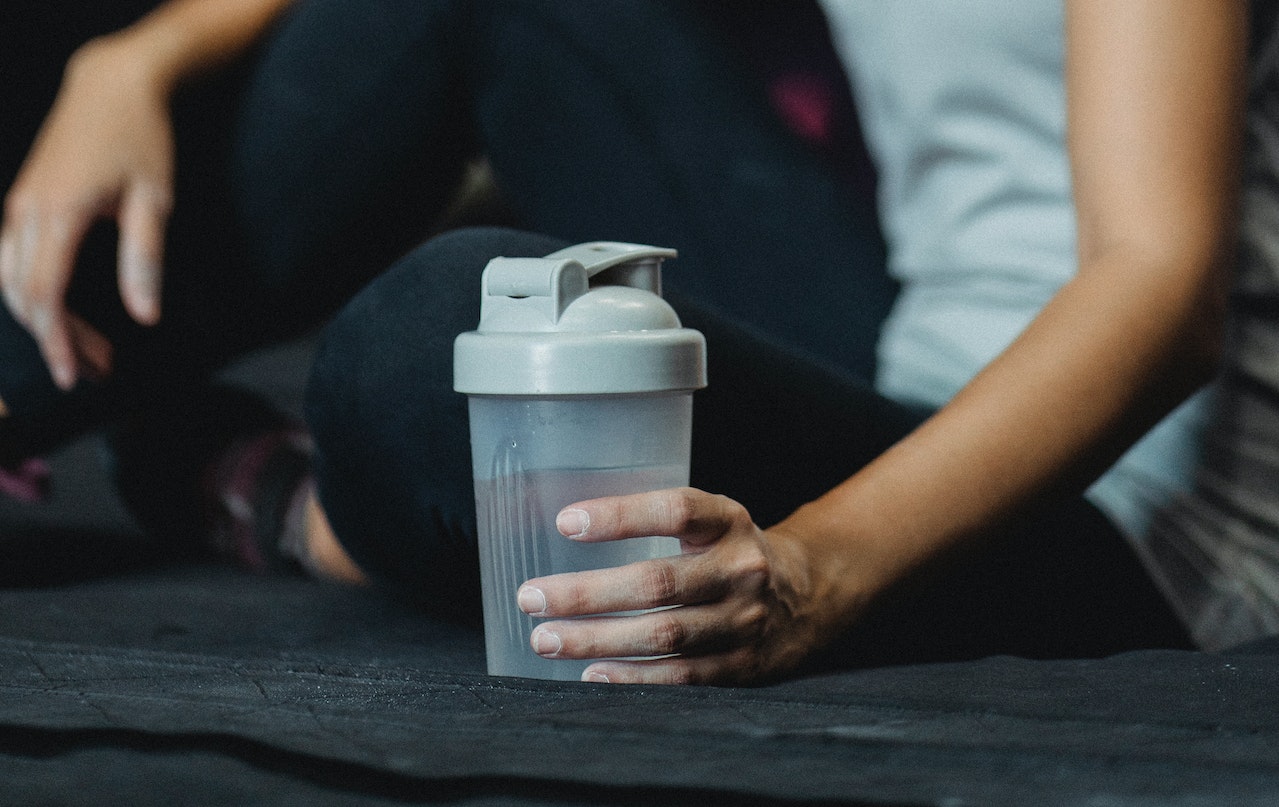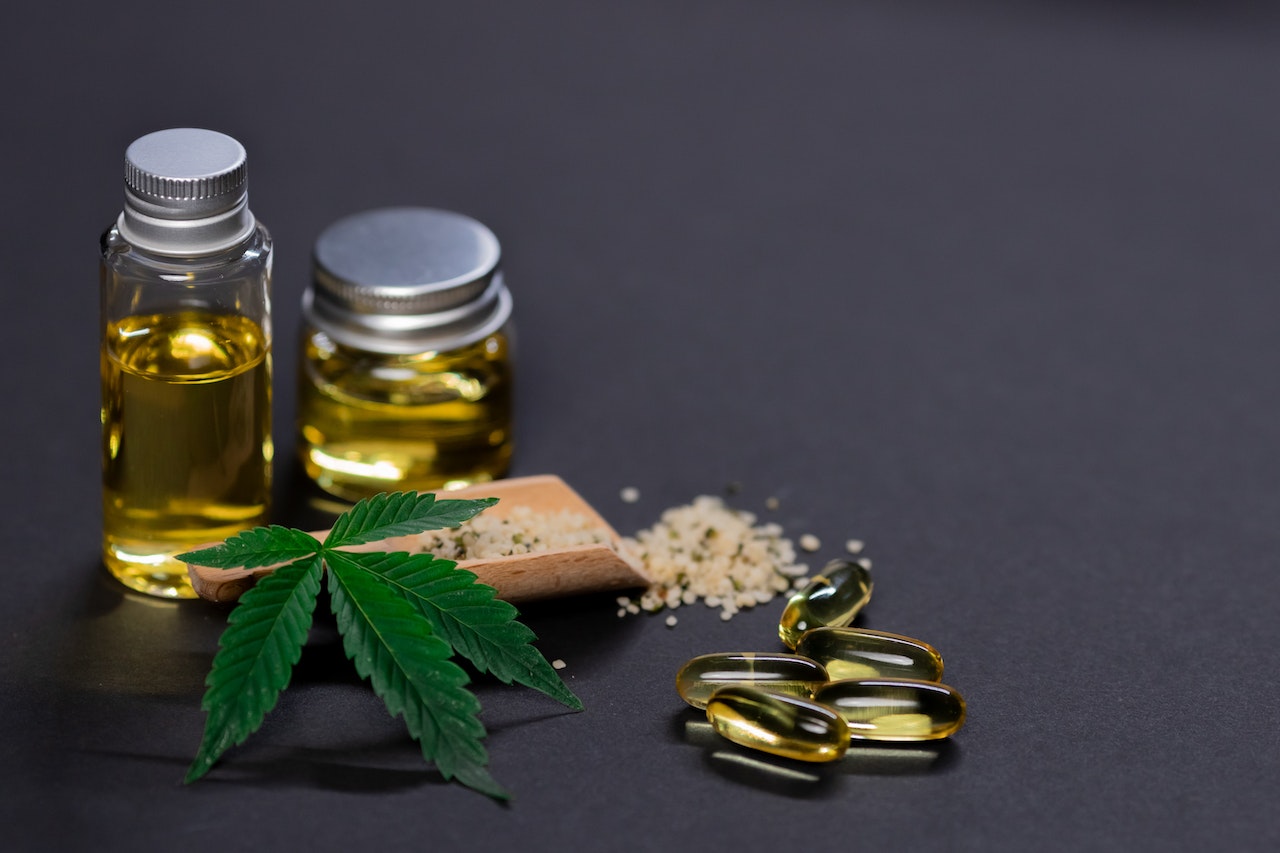Importance of Recovery in Training

Training and recovery are two sides of the same coin, or at least they should be. Best results in the gym and for one’s well-being are dependent not only on the workout routine but also on the post-workout recovery. This is the time when the body can adapt to the stresses that athletes put it through.
Most workouts, whether professional or not, cause a number of processes in the body. One of the most noticeable ones is the feeling of fatigue or tiredness. Also, during a workout, muscles experience micro-damages. Recovery time is needed for these damages to heal.
Apart from that, hormone and enzyme levels fluctuate, inflammation increases, and all of these symptoms can become detrimental if not appropriately addressed.
Additionally, during the recovery time, all of the positive effects of training can occur. It’s through repairing micro damages and recovery of the tissues in the body that one can become healthier and actually realize the full benefits of training. The training and recovery cycle is imperative for athletes to build their bodies and increase their stamina.
That is why workout recovery has such importance and should never be neglected. What are some of the best methods to support muscle recovery, and how can CBD be a valuable factor in it?
Methods of Recovery
Anyone who has experienced some kind of physical exertion knows how painful the following days can be. In the time after the workout, it is important to slow the pace and give the body time to rest. It might be beneficial to know how to speed up muscle strain recovery in order to minimize some of the muscle pain that can be characteristic of the recovery stage. Here are some of the things that can be done to achieve that.
Hydration
Hydration is crucial in any condition, and it can be a valuable factor during recovery too. Exercising leads to the loss of fluids (even up to 9 pounds in some circumstances), and replenishing its levels is a must.
Drinking lots of water before, during, and after exercising is recommended by the American Council on Exercise as water helps with regulating body temperature and blood pressure and also takes part in the distribution of nutrients in the body.
What’s more interesting, it might be beneficial to include chocolate milk in the recovery fluid intake. Milk contains proteins that are highly favorable for muscle recovery. Also, some studies suggest that carbs from chocolate can decrease muscle soreness and shorten the time the body needs to be fully efficient again.
However, it might be wise to avoid other beverages, such as alcohol. When drinking alcoholic drinks, one is usually more prone to excrete more urine, which then leads to dehydration – something that during the recovery phase is particularly unwelcomed.

Rest
It’s relatively intuitive to rest after the workout to regain strength and increase energy levels. Rest can mean many different things to many people, but the basic rule is to refrain from demanding physical activities.
During rest days, one can do some light exercises like walking or stretching, but body fatigue should be avoided.
Qualitative Sleep
Another fundamental habit is to take care of a good night’s sleep. Good sleep hygiene can influence the body’s recovery and the athlete’s performance. On average, an adult needs seven to nine hours of sleep, but the right amount of sleep varies from person to person.
Apart from giving your body a good night’s rest, it might be beneficial to incorporate a few power naps during the recovery days. Naps have many valuable advantages, one of them being that they allow getting some much-needed rest without all the consequences of a full sleep cycle, which often cause feelings of disorientation and tiredness (usually, when one wakes up in the middle of such a cycle).
Twenty minutes of napping two hours after the workout is all a person needs to regain some lost energy, lower the heart rate, and reduce stress, thus supporting the recovery processes in the body.
Active Recovery
Active recovery can be included in the recovery time, usually as an interruption from passive recovery. This means incorporating some of the less demanding forms of physical activity, like swimming, light jogging, or yoga.
The goal of a recovery workout is to allow the body to rest while stimulating the mind and promoting relaxation. It’s important not to overburden the body, as this is still part of the recovery time. This means all the physical activities should focus on fun and relieving stress, not on accomplishing performance goals.

Stretching and Massages
Stretching is also something that can shorten the muscle strain recovery time. This practice can bring positive changes in regards to how much pain an individual will be experiencing every recovery period. Stretching can increase recovery and reduce pain.
Studies point out that muscle soreness can be also minimized with massages. One can decide on a traditional massage or use a foam roller to help reduce the muscle imbalances from forming.
Protein Intake
Diet also has an immense impact on how quickly and effectively the body will regenerate. With intense workouts, eating enough proteins is absolutely essential. Proteins are full of amino acids, which are building blocks of the body, and are needed for various tissue repairs. This exact process takes place in the recovery stage, so providing protein before and after the workout is highly recommended.
A list of foods high in protein includes:
- dairy products
- meats like fish, poultry, or beef
- eggs
- beans
- soy
- mushrooms
Eating something rich in proteins and carbohydrates after a workout is a great way to replenish some of the lost energy and deliver the protein to the muscles.
Reduction of Stress
The detrimental effects of stress have been broadly discussed for quite some time. Researchers discovered that stress can influence the immune system, lead to impairments in cognition functions of the brain, and reduce the efforts to be physically active altogether. But how does it influence post-workout recovery?
As expected, stress does not present positive effects on muscle recovery. A study from 2014 showed that stress could extend the recovery time, while lower stress levels promote faster healing. That is why many people focus on a holistic approach to their recovery, taking care of their bodies as well as their minds.
It might be worth considering adding some stress-relieving practices to a recovery routine, such as meditation, yoga, listening to music or podcasts, reading, taking naps, and avoiding stressful situations, in order to promote faster recovery.
Muscle Recovery Supplements
Additional help can be provided with different muscle recovery supplements. Supplements can be administered in various forms, for example, protein, magnesium, or fatty acid supplements, served in the form of a powder that can be dissolved in water.
Some supplements can reduce pain and inflammation. Topical creams, CBD products, or anti-inflammatory drugs could be good examples of such products.
Recovery supplements may not be necessary, and sometimes, when applied irresponsibly, they can cause more harm than good. Before implementing any supplements, it might be necessary to visit a doctor and perform examinations and blood tests to determine which, if any, supplements can be safe and beneficial to introduce.

Additional Information
Lately, there has been some debate in the scientific community about the beneficial properties of taking cold baths after a workout. Some early studies on this subject have shown that this practice indeed can reduce soreness and accelerate the recovery process.
However, more recent findings suggest that the effect of cold baths on the recovery of muscles may be the exact opposite of what was believed. Cold baths can prolong the time needed to build muscle mass and therefore reduce the effectiveness of training.
The authors of the study concluded that cold water immersion as one of the after-workout treatments should be reconsidered.
How Much Recovery Is Necessary?
The time needed for a full recovery will differ between individuals. It will depend on the fitness condition, age, the intensity of the workout, and other personal factors. The average recovery time is 48 hours, but it can be shorter or longer.
What can be said is that quality recovery will definitely improve the condition of the body and muscles and will not take as much time.
Inflammation’s Role in Recovery
Inflammation often signals that there is some damage in the body that needs repairing. As stated before, a workout causes micro-injuries to the muscles. The healing processes that take place during the recovery time are precisely what allow people to increase their muscle mass.
Post-workout inflammation is therefore expected and normal occurrence, however this doesn’t mean that one should ignore this condition. Inflammation in the muscles is precisely the reason why recovery is so pivotal. Good rest, quality sleep, and proper diet are essential for post-workout inflammation not to become chronic.
Chronic inflammation in the body can lead to a number of health complications. The list of symptoms and potential risks include soreness, fatigue, chest pain, insomnia, frequent infections, and being prone to injuries. All of this should be avoided in order to have the best performance in the gym and enjoy a healthy life outside of it.
Consequences of Not Giving Your Body Time to Recover
The consequences of not putting enough emphasis on recovery can be detrimental, as our bodies need time to heal. It’s not only an adverse situation with regard to our physical and mental health, but also when we consider getting the most benefits from physical activity.
Tiredness, chronic inflammation, soreness, problems with sleep, mental overstrain, risk of injuries, mood swings, weakened immune system, and an increase of cortisol in the bloodstream (stress hormone) are all among the most common symptoms of overburdening the body and not giving it enough time to heal.

CBD in Recovery
As mentioned earlier, some athletes depend on different supplements to enhance their performance and strengthen the body. But are there any supplements that can be especially valuable during the recovery process?
Some athletes reach for CBD for muscle recovery with apparent success. CBD claims to offer many benefits such as supporting quicker recovery. First, CBD can promote a state of relaxation and tranquillity. Many people report that their stress levels decreased after taking CBD. They sleep better and have more energy. This, of course, is welcomed in the recovery time when the body should be given the opportunity to rest and heal.
Another important reason CBD oil for muscle recovery can be a good supplement is that CBD has inflammation fighting properties. Reducing inflammation in the muscles may contribute to shortening muscle recovery after a workout.
CBD can also help in pain management, as it is recommended for people who experience chronic pain. Taking CBD oil for muscle soreness may be a good way to reduce it and enjoy pain-free recovery.
It’s worth mentioning that, although CBD can help minimize some of the less pleasant aspects of the recovery and even reduce the time it takes for the body to heal, it’s still important to dedicate a reasonable amount of time for breaks between workouts. How long the recovery period should be will depend on the individual aspects. One should closely monitor the body’s reaction to supplements and learn to recognize the signs the body sends when it is healed.
The best practice is to consult with a doctor about the most optimal recovery plan and taking CBD to enhance it.
Summary
Recovery is a vital part of training. During recovery, the important processes in the body can take place, one of them being muscle repair which allows the muscle mass to increase. Therefore recovery time is an essential part of any training program.
When recovering, it is crucial to take care of a few practices, like a balanced, rich in protein diet, hydration, good sleep, and rest. One can also take CBD products in order to support the healing processes and reduce stress, pain, and inflammation.
The best way to care about the body during workout and recovery is to observe the occurring changes, learn the body’s reactions and follow the instructions of medical professionals.
You can find more information about how beneficial CBD for athletes may be in our other related articles.
DISCLAIMER
The statements expressed on this website are purely opinion of the author and not factual. These statements have not been evaluated by the Food and Drug Administration. Any products referenced on this website are not intended to diagnose, treat, cure, or prevent any disease. It’s highly suggested to consult with your medical professional prior to any use of the products referenced on this website. This website and author specifically disclaim any liability in connection with the products contained on the website.
